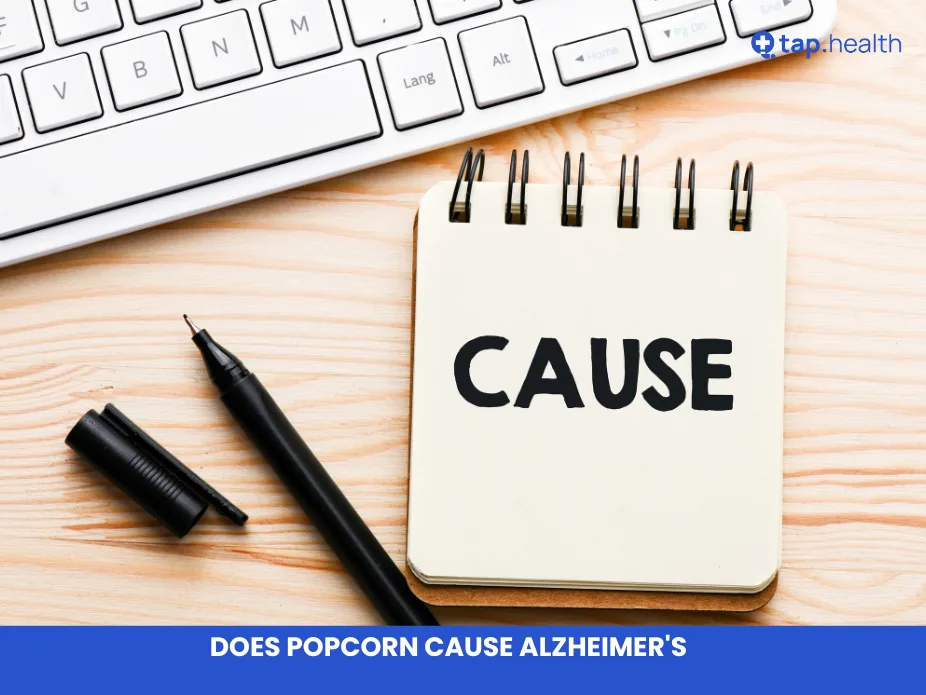Alzheimer’s disease is a complex topic that raises many questions, especially when it comes to our food choices. One of the more intriguing inquiries is whether popcorn, a popular snack, could contribute to this condition. In this blog post, we’ll explore the relationship between popcorn and Alzheimer’s, clarify some common misconceptions, and provide you with reliable information grounded in research.
Understanding Alzheimer’s Disease
Alzheimer’s disease is a progressive neurological disorder that primarily affects memory and cognitive function. It is the most common form of dementia, impacting millions of individuals worldwide. The exact cause of Alzheimer’s is still not fully understood, but several factors, including genetics, lifestyle, and diet, are believed to play significant roles.
The Nutritional Profile of Popcorn
Before we dive into the question of whether popcorn causes Alzheimer’s, let’s look at what popcorn is and its nutritional value.
- Whole Grain: Popcorn is a whole grain, which means it contains all parts of the grain kernel: the bran, germ, and endosperm. Whole grains are often linked to various health benefits, including reduced risk of heart disease and improved digestive health.
- High in Fiber: Popcorn is a great source of dietary fiber, which is essential for maintaining a healthy gut and preventing constipation.
- Low in Calories: When prepared without excessive butter and salt, popcorn is a low-calorie snack, making it a popular choice for those looking to maintain a healthy diet.
Does Popcorn Cause Alzheimer’s?
Now, let’s address the central question: Does popcorn cause Alzheimer’s?
Current Research Insights
Based on existing research, there is no direct evidence to suggest that popcorn causes Alzheimer’s disease. However, certain factors associated with how popcorn is prepared and consumed may play a role in overall brain health.
- Dietary Patterns: Studies suggest that a balanced diet rich in antioxidants, omega-3 fatty acids, and whole grains may reduce the risk of Alzheimer’s. Popcorn, as a whole grain, can be a part of this healthy diet if prepared correctly.
- Additives and Toppings: The way popcorn is often prepared can affect its health benefits. For example, adding excessive butter, salt, or sugar can transform a healthy snack into an unhealthy one. These ingredients can contribute to inflammation and other health issues, which may impact brain health over time.
- Glycemic Index: Popcorn has a moderate glycemic index, which means it can affect blood sugar levels. Diets high in refined carbohydrates have been linked to cognitive decline, so it’s essential to consume popcorn in moderation and as part of a balanced diet.
Real-Life Scenarios
To put things into perspective, let’s consider a couple of real-life scenarios involving popcorn and its consumption.
Scenario 1: Priya’s Movie Night
Priya, a 35-year-old teacher from Mumbai, loves to enjoy a bowl of popcorn while watching her favorite movies. She often makes her popcorn using an air popper and adds a sprinkle of nutritional yeast for flavor. Priya’s approach allows her to enjoy a healthy snack without excess calories or unhealthy fats.
Scenario 2: Raj’s Snack Choices
On the other hand, Raj, a 40-year-old IT professional from Bangalore, often buys pre-packaged popcorn loaded with butter and salt. While he enjoys the taste, he is unaware that these added ingredients can be detrimental to his health, especially if consumed frequently. Raj’s choice of popcorn could lead to weight gain and potential health issues, which could indirectly affect cognitive function over time.
Expert Contributions
To gain further insights, we spoke with Dr. Anjali Mehta, a neurologist based in Delhi. Dr. Mehta stated, “While popcorn itself is not harmful, the way it is consumed matters significantly. A balanced diet, rich in whole grains and low in processed foods, is essential for maintaining brain health.”For additional expert opinions, you can refer to resources like the Alzheimer’s Association’s website here.
Recommendations Grounded in Proven Research and Facts
If you’re concerned about Alzheimer’s and overall brain health, here are some recommendations:
- Choose Whole Grains: Incorporate whole grains like popcorn, brown rice, and whole wheat bread into your diet.
- Limit Additives: Avoid excessive amounts of butter, salt, and sugar in your popcorn. Instead, try seasoning with herbs or spices for added flavor.
- Balanced Diet: Focus on a diet rich in fruits, vegetables, nuts, and healthy fats like those found in fish. This diet can help protect your brain.
- Stay Active: Regular physical activity is crucial for maintaining cognitive function. Aim for at least 150 minutes of moderate aerobic activity each week.
- Mental Stimulation: Engage in activities that challenge your brain, such as puzzles, reading, or learning a new skill.
Factual and Reliable Information
In summary, there is currently no evidence that popcorn causes Alzheimer’s disease. However, maintaining a healthy diet and lifestyle is essential for reducing the risk of cognitive decline. Popcorn can be a part of a balanced diet when prepared in a healthy way.
Frequently Asked Questions (FAQs) on
Q1: Is popcorn a healthy snack?
A1: Yes, popcorn can be a healthy snack when prepared without excessive butter and salt.
Q2: Can eating popcorn every day increase the risk of Alzheimer’s?
A2: There is no direct link between eating popcorn daily and an increased risk of Alzheimer’s, but it’s important to maintain a balanced diet.
Q3: What are some healthy toppings for popcorn?
A3: Consider using nutritional yeast, herbs, spices, or a small amount of olive oil instead of butter and salt.
Q4: How can I reduce my risk of Alzheimer’s?
A4: Focus on a balanced diet, regular physical activity, mental stimulation, and staying socially engaged.
Conclusion
In conclusion, while popcorn itself does not cause Alzheimer’s disease, the way it is consumed can impact overall health. By making healthier choices and leading a balanced lifestyle, you can enjoy popcorn as a nutritious snack without worry. Remember, moderation and awareness of what you eat are key to maintaining brain health and overall well-being.




